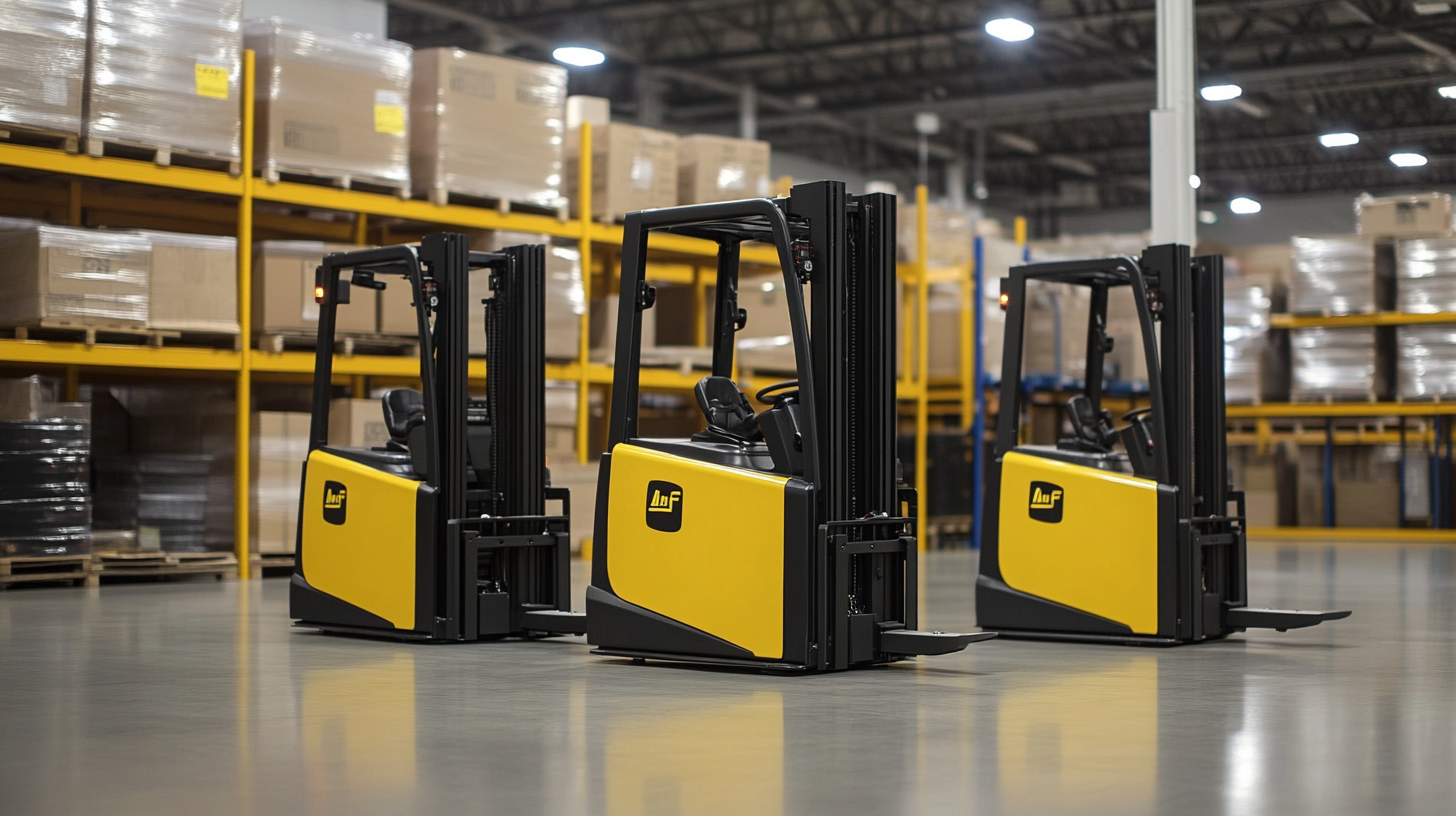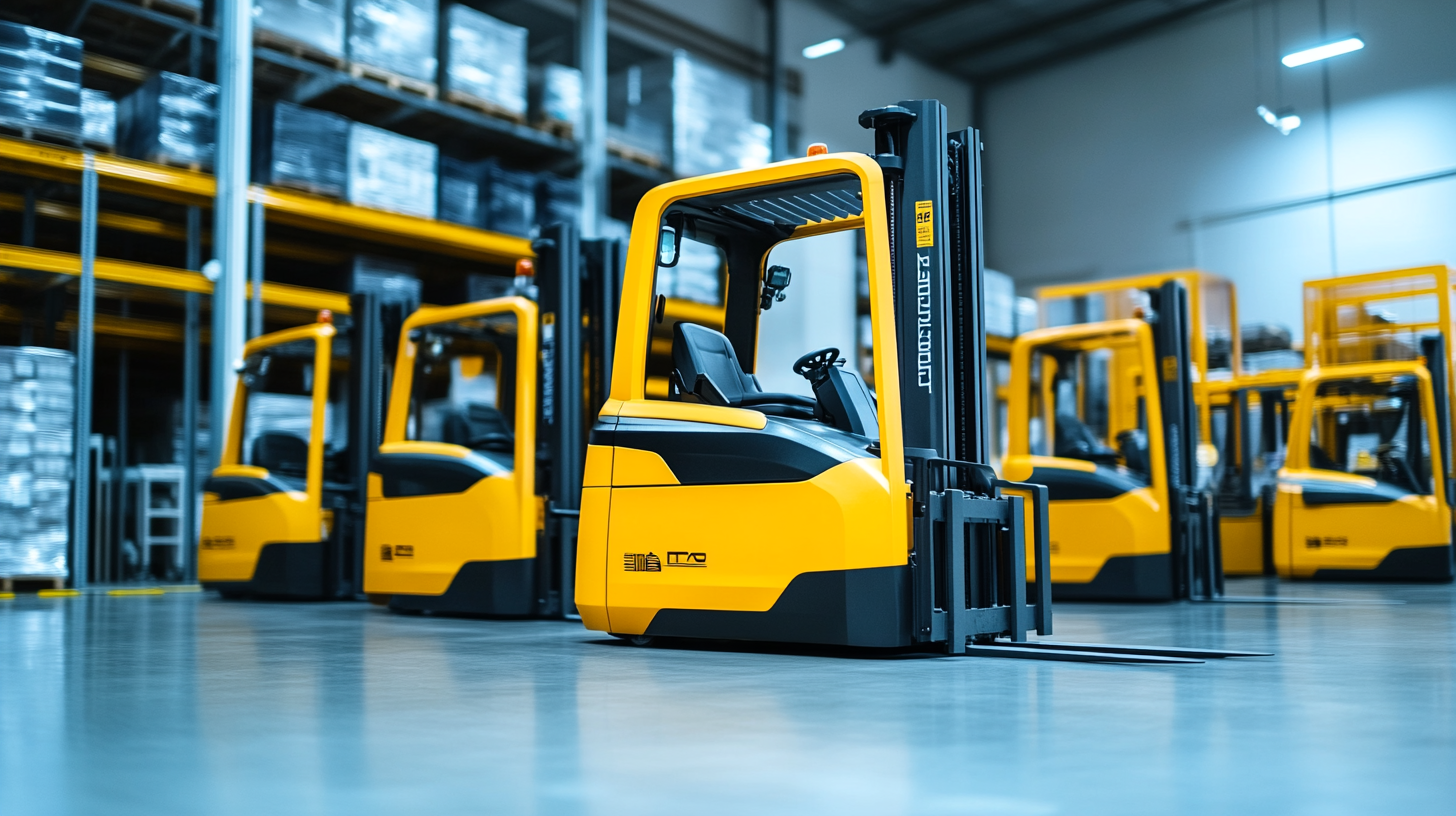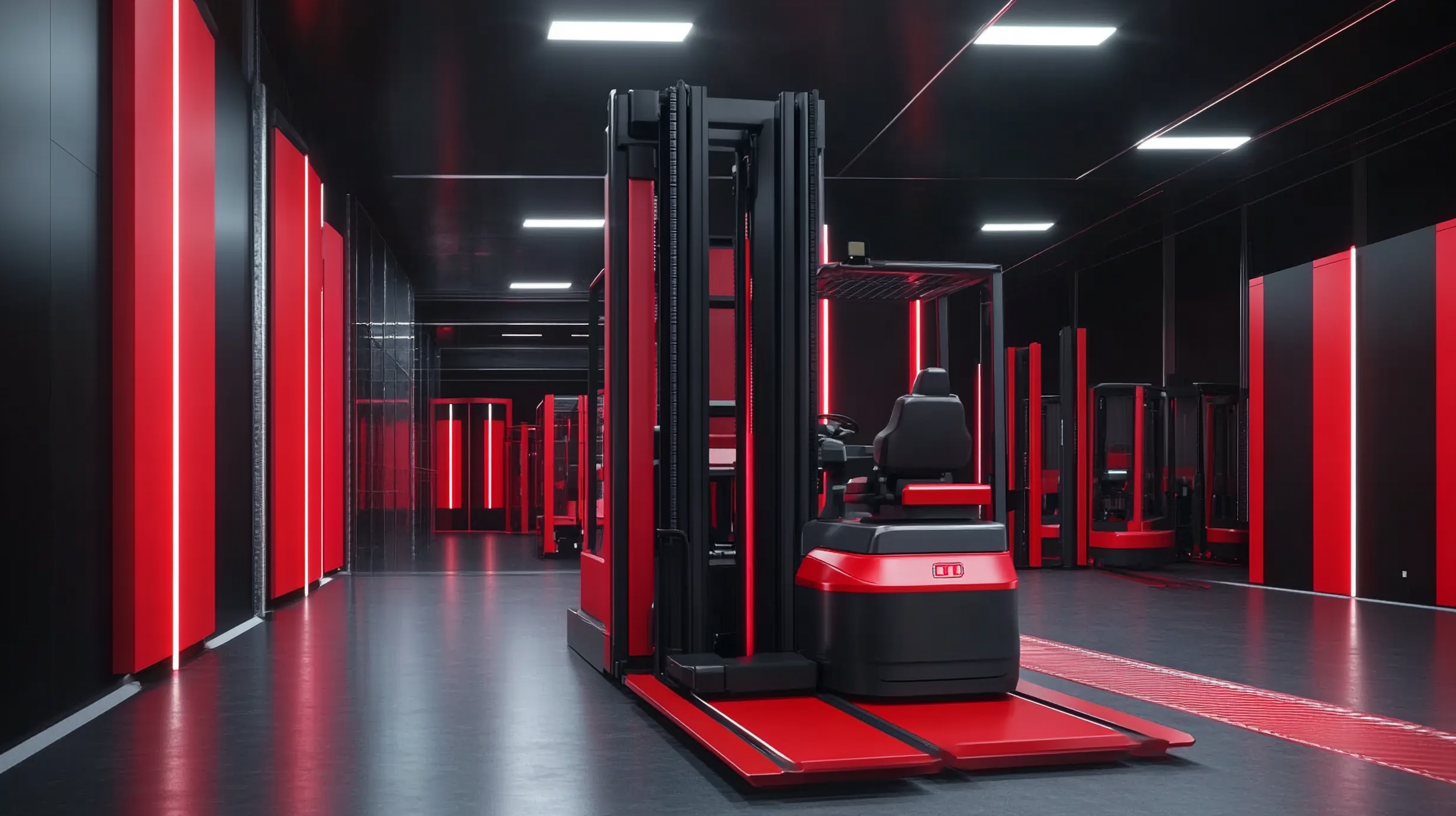Innovative Uses of Battery Operated Forklifts in Modern Warehousing Solutions
The years gone by have seen many changes in warehousing and logistics. The changes are precipitated by changing technology and the demand for efficiency. One of the innovations that are steadily making their way into modern warehousing is battery-operated forklifts. According to a recent report by the Material Handling Industry of America, there has been a remarkable growth in adoption of battery operating forklifts, with forecasts of 7.5% growth per annum for the next five years. Such rapid growth is on account of eco-friendliness, low operational cost, and enhanced safety features that comply with the trend of sustainable ways of doing business in this industry.
Battery-operated forklifts also alleviate some of the environmental problems associated with gas and diesel machinery, improving the working atmosphere for warehouse personnel by providing less noise and vibration. The greater maneuverability and better safety design of battery-operated forklifts may also be the reason a study conducted by OSHA pointed out a 20% drop in accident-related injuries in warehouses using them. As we delve into the forward-thinking applications of battery-operated forklifts in modern warehousing solutions, we see that battery forklifts are not merely a trend; they stand as a key aspect of the future of logistics and supply chain management.

The Rise of Battery Operated Forklifts in Warehousing Today
Battery-operated forklifts in warehousing today represent a profound change in the materials handling arena, while a report by Grand View Research indicates that the global electric forklift market is expected to touch $38.52 billion by 2028, showcasing the ever-increasing preference of electric forklifts vis-a-vis traditional internal combustion engine forklifts. The trend has been primarily led by environmental issues and increased awareness of the operational benefits that battery-operated models have to offer. Battery-operated forklifts have many advantages: they reduce the emissions during operation and keep the operating costs low. The pressure from companies to minimize their carbon footprint has supported the smooth sustainability enabling role of electric forklifts. A 2020 study from the Material Handling Industry Association suggested that electric forklifts may reduce the energy consumption of a facility by 30% as compared with gas trucks. Due to certain improvements in battery technology like lithium-ion batteries, performance-wise and in respect of charge time, these forklifts are becoming even more productive in high-demand environments. Further, with all of these properties attached, flexibility and versatility mark the introduction of battery-operated forklifts onto warehouse settings today. In relation to the rise of e-commerce, warehouses have started operating 24 hours. Electric forklifts are charged during breaks, thus completing the workflow without interruptions from fuel systems as in diesel or LPG-based forklifts. Therefore, organizations are beginning to realize that integrating battery-operated forklifts enhances operational efficiency and boosts overall productivity in fast-paced warehouse settings.

Key Benefits of Utilizing Battery-Powered Forklifts in Logistics
They are quickly replacing modern warehousing and logistics with the environmental beat and the efficiency of battery-operated forklifts, as revealed in a recent industry report by Guotai Junan Securities. The report also reminds companies that making this shift to electric and lithium battery technologies is now not just a fad but an urgent strategy toward global sustainability goals. The more enterprises push for cleaner operations under carbon neutrality goals, the more the use of battery-operated forklifts becomes a must.
The key benefit of using battery-powered forklifts on the long run is that these machines are cost-effective. Typically, the initial investment costs relative to conventional internal combustion engine units are higher. They become attractive, however, in the medium to long range because the fuel and maintenance costs continue to reduce. Increasing research indicates that electric forklifts can cut operating costs by up to 30%, major findings recently discussed in analyses on the efficiency of equipment in logistics environments.
Another angle that does not need mentioning when it comes to this battery-driven forklift is its flexibility and technological superiority. In fact, with manufacturers like Hangcha Group moving toward electric and internationalization, the worldwide market is expected to chart a steady growth path in future electric forklift sales. There have been phenomenal strides in the growing demand for sustainable solutions in logistics, with electric lifted products now making a huge mark in material handling equipment markets reminding people of their indispensable role in the logistics sector.

Innovative Technologies Enhancing Battery Forklift Efficiency
The recent advancements in battery-operated forklifts have become synonymous with the implementation of new technologies in modern warehousing solutions. The upcoming increase in building sizes of the forklift market above $81.8 billion by 2024, acted upon by the boom in e-commerce and warehouse automation, is exponentially increasing demand for more efficient and green material handling equipment. Further, industry reports claim that the compound annual growth rate (CAGR) for the forklift market from 2025 to 2034 is 5.6%, showing the constant evolution of logistics operations.
Exide Technologies has taken a lead position in the battery segment for materials handling equipment. With unique battery technology, strong manufacturing capabilities, and an established distribution network, competitive advantage is developed for this promising segment. New innovations such as lithium battery forklifts introduced by Zhongli Group are designed to work in different operational environments of companies and come with dual safety systems and customizable battery capacities. This allows the reduction of operational costs and an enhancement of efficiency in complex warehousing situations.
Moreover, the creation of sophisticated safety systems such as the anti-tipping double insurance system engineered at Jinchuan Nickel-Cobalt Logistics Company gives credence to the commitment of the industry towards the incorporation of technology for enhancing productivity and safety. Since investments into industrial electric vehicles, from battery electric to hybrids, are on the rise, the landscape of warehouse operations is about to get even more efficient, dynamic, and in tune with the global supply chain.

Environmental Impact: How Battery Forklifts Support Sustainability Goals
Battery-operated forklifts are becoming quite influential in the warehousing modern world, especially regarding their role in sustainable strategies. If more businesses are investing in electric replacements to fossil-fueled forklifts, it does make a huge difference. Over the years, an estimated $5.5 billion market for global forklift batteries is set for the year 2024; this means electric forklifts are not a passing trend by any means, but rather a strong response to the pressing environmental concerns and regulatory pressure building up.
More evidence is coming to light backing the transition to electric forklifts; battery-operated systems have seen fast-tracked adoption as companies grapple with scrutiny over their carbon footprints. Studies show the compound annual growth rate for the forklift market is estimated to be 7.6% till 2034 as electric models gain preference over their diesel counterparts due to relatively lower emissions and genuine operational costs. The commitment towards sustainability is further cemented with companies settling for Environmental, Social, and Governance (ESG) strategies that target the reduction of environmental footprint through innovation and responsible manufacturing processes.
In any case, the electric vehicle sector, with its action plan for battery recycling recently approved, shows great promise creating a circular economy. Such developments work towards enhancing the sustainability of battery-operated forklifts by not only cocooning them from waste but also supporting the efficient reuse of materials. With an ever-evolving industry, battery technology in forklifts will stand out as another vital factor to delivering exceptional sustainability goals, thus communicating that logistics can go hand in hand with environmental stewardship.
Case Studies: Successful Implementation of Battery Forklifts in Warehouses
Recent years have seen a battery forklift revolution engrossing the warehousing space with modern solutions. This monumental switch witnessed several case studies of successful electric-operated machines from the warehouse floor, including one large retail distribution center that dealt with inefficient load handling and high operating costs. The integration of battery forklifts into their operations resulted in an astounding productivity increase of 30% with the smooth transition of inventory management and overall workflow.
Next is an interesting case of a pharmaceutical warehouse where there is no room for errors: safety and time are critical to their operations. This warehouse observed safety improvement and lowered emissions after the conversion from gas-powered to battery-operated forklifts. Furthermore, the low-noise operation of the electric forklift minimized noise pollution, thereby rendering a significant possibility of improving the employees' working experience, hence morale and performance. These case studies affirm the versatile nature of battery forklifts across many settings and operational requirements while promoting sustainability.
Additionally, one finds examples of efficiency gains within an automotive parts warehouse that contended with limited space and product turnover. The introduction of battery-powered forklifts permitted the warehouse to optimize vertical storage solutions and improve inventory turnover. The able and expeditious recharge of the forklifts ensured constant operation without significant downtimes, thereby increasing the operational uptime and productivity of the battery-operated forklifts. This is showing the gradual yet accelerating trend towards the electrification of warehousing, which shows how battery-operated forklifts appreciate the logistics and material handling in modern warehouse environments in a varied manner.


